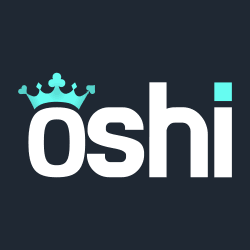The renminbi (RMB) is the official currency of the People’s Republic of China. The Chinese currency has historically and internationally often been referred to as the “yuan” and this is still sometimes the case. Translations into English always face the problems involved in the incompatibilities involved in converting a pictorial language such as Chinese and Japanese into a language consisting of a conventional alphabet. The yuan remains the name of the basic unit of the renminbi, so perhaps the simplest way of attempting to explain the difference is that the situation is similar to the distinction between the terms “pound” and “sterling” in our own currency. The name of the basic unit is the pound, but the currency is sterling.
The renminbi was officially adopted as the name of the official Chinese currency after an understandably large amount of uncertainty and instability caused by the future Chairman Mao’s revolution. As the revolutionary Communist Party slowly gained control of the Chinese economy, various money systems then in use across this vast nation were slowly unified into a single currency. The name renminbi was finally officially adopted in 1949.
During the early years of the regime, the economy was effectively closed to foreign trade, so an exchange rate did not really exist in practice. Renminbi could only be used in China: the currency was not readily exchangeable abroad. Foreigners were not allowed to buy or use the currency in China either. Tourism was severely restricted, and any businessmen or traders permitted into China were forced to use foreign exchange certificates instead.
Since the 1970s, China has slowly become more open to western trade. In 1972, US President Nixon made a historic visit to China, and in 1978 the mainland Chinese economy was opened to Western trade for the first time. Conversion of the currency remained difficult, not least because of the unrealistically high value imposed on the currency by the Chinese state. Throughout the 1980s and 90s, the currency slowly became more convertible, as the value of the renminbi gradually became more compatible with its real international value. This process was reinforced by the transfer of sovereignty of the economic powerhouse territory of Hong Kong to China in 1997, making it essential for the Hong Kong economy to be integrated with that of its new mainland masters.
As a result of this process, this opening of China to western trade has tended to accelerate still further in more recent years, as state control of the internal economy has been gradually loosened. It’s not exactly a “free market”, but certainly the renminbi is now openly traded on the currency markets and few controls on tourism and foreign access to the Chinese currency remain. But even to this day, the currency is not allowed to float freely in value, but instead must remain within a narrow band specified by the Chinese Government.
There are many Chinese nationals living in the United Kingdom, and the renminbi is frequently used to send money to friends and relatives remaining in mainland China and the new autonomous Special Administrative Region of Hong Kong. Hence it is certainly not uncommon for the currency to be used to make online payments involved in playing the ancient colonial game of bingo! Many UK regulated sites accept the currency, usually through the use of the centrally controlled UnionPay debit cards, which remain under the authority of the People’s Bank of China.
Full List Of Chinese Renminbi Casino Sites
HopaWelcome Bonus 100% Bonus Up To £100 + 20 Bonus Spins |
| Go To Site | This Aspire Global powered casino has all the advantages (and disadvantages) that are typical for this family of sites. The advantages are many: Hopa is optimised for play on more compact screens, so it is definitely phone friendly. It has lots of tabs, links and user-friendly features to help you...Read More Terms & Conditions: NEW IMPROVED OFFER 100% up to £100 and 20 Bonus Spins. 18+. New players only. Offer is valid on 1st deposit of minimum £10. 100% bonus match up to £100 plus 20 bonus spins on Fishin Frenzy Big Catch Megaways. Bonus funds + spin winnings are separate to cash funds and subject to 35x wagering requirement (bonus + deposit). Only bonus funds count towards wagering contribution. Winnings from Bonus Spins credited as Bonus funds and capped at £100. Bonus funds must be used within 30 days, spins within 24 hours. Maximum bonus bet £5. Affordability checks apply. Terms Apply. GambleAware.org. Terms Apply. | |
Oshi CasinoWelcome Bonus 100% Bonus Up To €1,000 + 150 Bonus Spins |
| Go To Site | It is a little unconventional to begin a review of a casino with the payment options. These are usually one of the dull bits near the end close to the Terms & Conditions. But Oshi Casino is one of the first to accept Bitcoin as an option. I suppose one...Read More Terms & Conditions: UK players are not accepted. For other players in Europe the welcome package is worth 4,000 € and 200 Free Spins over 4 deposits, starting with 100% match bonus up to 1,000 € and 150 free spins on 1st deposit. New players only. Minimum deposit 20 €. Free Spins are for Aztec Magic Deluxe (Bgaming), Gemhalla (Bgaming), Wild Cash (Bgaming), Elvis Frog in Vegas (Bgaming), Wolf Spins 243 (1spin4win), Werewolf's Night (1spin4win), Book of All Ways (1spin4win), Hold the Gold (1spin4win). Free spins will be added as 50 free spins per day. WR 45x bonus money or winnings from free spins. Bonus duration is 5 days. Free spin activation duration is 1 day, free spins duration and free spins result duration are 5 days. Full terms apply. |


